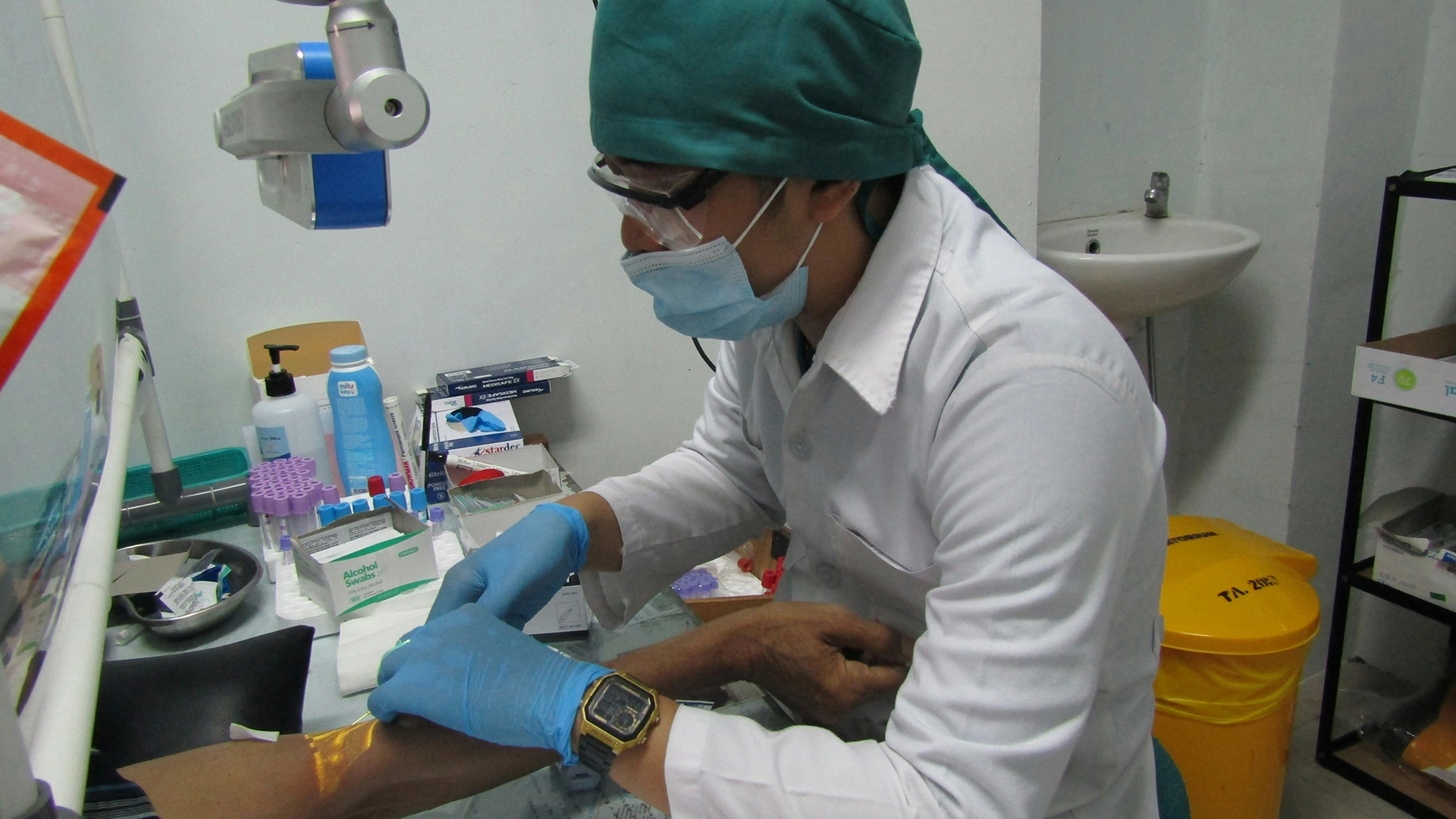
Image by Mufid Majnun, from Unsplash
AI Virtual Patient Trains Future Healthcare Workers
Medical students at Coventry University will now practice through a virtual patient system powered by AI, aimed at developing their skills through realistic patient simulations.
In a rush? Here are the quick facts:
- Coventry University developed an AI avatar named Sarah for medical training.
- Sarah provides natural, personalized answers, unlike scripted virtual patients.
- AI reduces creation time from 100 hours to about 30 minutes.
The system uses advanced large language models which generate real-time conversations with an AI avatar, named Sarah. This tool was developed to help future healthcare workers build confidence before stepping into real-world practice.
Unlike earlier versions that relied on scripted responses, this new system uses advanced large language models guided by ChatGPT-style prompts to give personalised, natural answers.
According to the PhD student who led the project, Juliana Samson, the AI system produces more authentic interactions between users and the avatar.
“Sarah’s answers are more consistent with the intended history that we want the students to get out of the scenario,” she explained to the BBC. Samson, who previously worked as a physiotherapist for twenty years, emphasized that the tool provides a “safe space” for students to practise without the pressure of treating a live patient.
Students also praised the system. “Students have told us it will help to build their confidence, especially for those who are maybe earlier on in the programme, and they enjoyed the activity,” Samson said to the BBC.
Indeed, experts believe this approach reflects a wider trend in education. Research on AI in virtual reality (VR) environments shows that personalized AI narration can significantly boost engagement.
Research shows that tailored AI interaction boosts student participation. The research on VR learning demonstrates that tailored AI interaction leads to a 64% rise in user participation while keeping cognitive load manageable. The research indicates that adaptive AI systems such as Sarah would both enhance student preparation and sustain their motivation over time.
The technology has another big advantage: speed. What once took 100 hours to design can now be drafted in just 30 minutes. “With this artificial intelligence we have been able to create an avatar that actually behaves like a patient and can be created quickly,” Samson said in a University press release.
The AI allows students to ask questions, take patient histories, and receive feedback points, all without risk of upsetting a real person.
The project is being developed with AI firm PCS. “We are thrilled to provide Coventry University our most intelligent Spark virtual patient AI, now driven by an in-house trained generative large language model for never-before-seen realism in communication training,” said PCS CEO Balazs Moldovanyi, as noted in the University press release.
Samson hopes to expand its use into occupational therapy, physiotherapy, and other healthcare fields.


 Previous Story
Previous Story

 Latest articles
Latest articles 